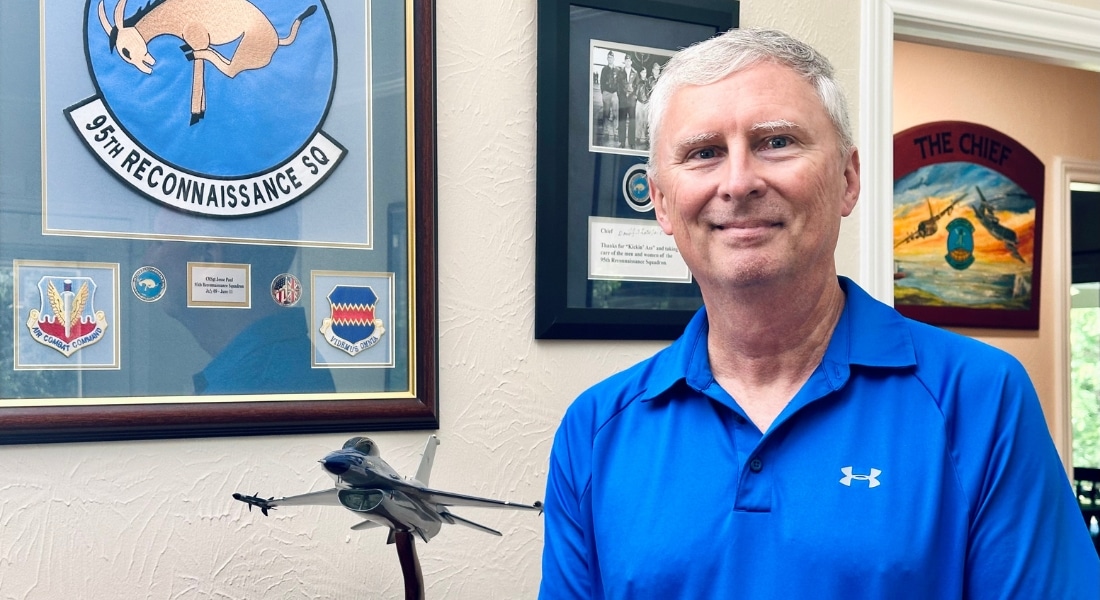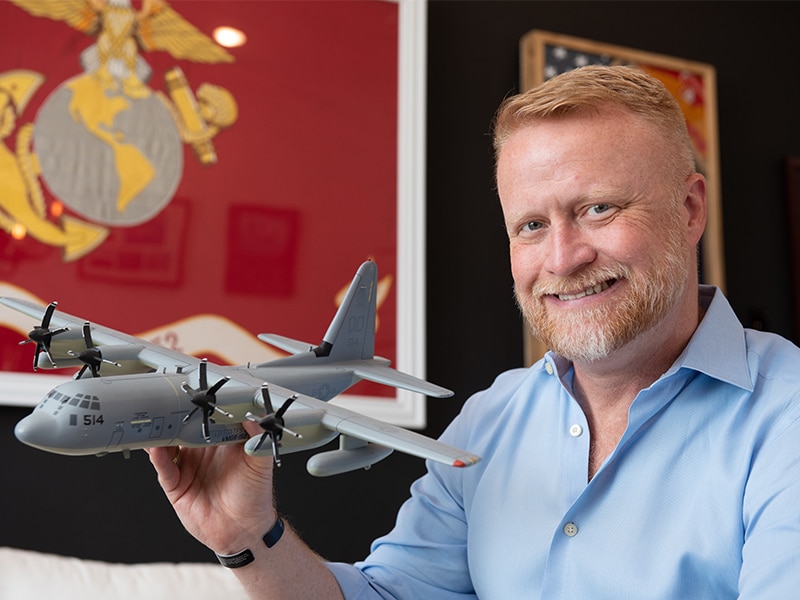Jesse Paul, an Air Force veteran with three decades of service to his country, faced his greatest challenge yet after leaving the military: colon cancer that spread to his liver.
Now cancer-free for more than a decade, Jesse and his wife, Janis, are grateful to the team at Methodist Richardson Medical Center for helping him beat the odds.
“This team was outstanding,” he says. “It’s amazing. I’ve gone years with no cancer, not even a symptom of it growing in any other area.”
Jesse had more than 75% of his liver removed in a 2013 procedure performed by Rohan Jeyarajah, MD, FACS, director of gastrointestinal services and program director of the hepatopancreaticobiliary surgery fellowship at Methodist Richardson.
“My life would be completely different if God had directed me in another way,” Jesse says. “This procedure allowed me to transition to a more normal life.”
But Jesse’s recovery wasn’t always a certainty because his cancer was initially diagnosed as something far more mundane.
RETIRING FROM MILITARY
Jesse spent most of his military career working as a crew chief maintaining aircraft for the Gulf War and Operation Enduring Freedom after 9/11, eventually rising to the rank of chief master sergeant.
“It was great Americans doing great things during a very troubled time in Iraq,” he says.
Before he retired in 2011, Jesse began having symptoms of colon cancer, but because he didn’t fit the right profile he never had a colonoscopy. He received an initial diagnosis of internal hemorrhoids.
“I was told that I’d eventually have to treat them, and with that diagnosis, I was discharged from the military,” Jesse says. “From there, things just continued to get worse.”

Jesse served as a crew chief in the Gulf War, maintaining KC-135 Stratotankers, shown refueling an F-16 over Iraq.
REFERRED TO METHODIST
Shortly after returning home to Greenville, he was diagnosed with a tumor in his colon that, to his surprise, was the size of a baseball.
After undergoing surgery and chemotherapy in Greenville, a later scan revealed that the cancer had spread to his liver. Metastatic colon cancer is a serious condition where cancer starts in the colon and then spreads to other parts of the body.
At this critical point, Jesse’s oncologist in Greenville referred him to the care of Dr. Jeyarajah.
“I was put in Dr. Jeyarajah’s hands for a reason,” Jesse says.
At Methodist, we don’t just focus on your cancer. We care for you as a whole person. Learn more at MethodistHealthSystem.org
REMOVING MOST OF LIVER
Jesse’s tumor was on the right side of his liver, and removing it would have left too little of the liver intact on the left side, Dr. Jeyarajah says.
During an initial surgery, a vein on the right side of Jesse’s liver was intentionally blocked off, which encouraged the healthier left side to grow. After that, Dr. Jeyarajah safely removed the right side of the liver in August 2013.
“That’s where he removed about 75% of my liver,” Jesse says. “The great thing about the liver is it’s one of the only organs that will grow back.”
To Jesse’s relief, he would not undergo chemotherapy after this surgery, and his successful outcome meant a lot to his medical team.
“Not only did we get a long-term solution, but we’ve also had excellent quality of life,” Dr. Jeyarajah says. “I feel remarkably grateful for being allowed to be part of his case.”

Jesse’s wife, Janis, was always there throughout his ordeal, and their faith was also ever-present.
CREDIT TO WIFE AND HIGHER POWER
Jesse’s surgeon wasn’t the only person who helped him overcome cancer. Along with the team at Methodist, his wife, Janis, was there every step of the way.
“Janis had to do some extraordinary things,” Jesse says. “I’ve told people that there’s no way I would be this way or alive without her.”
Janis admits it’s been a scary experience after the initial shock of her husband’s diagnosis.
“But it was amazing, too, because of Jesse’s strength,” she adds. “We had a lot of support from high up, and knew we were always being watched and taken care of.”
Jesse returned to work just six weeks after his surgery. Now cancer-free for 11 years, Jesse chooses to embrace life fully rather than dwelling on what might come next.
“From a health perspective, I don’t fear cancer anymore. It’s kind of different, not thinking about it constantly.”
Jesse’s positive attitude has been instrumental in his journey, and Janis believes his case can serve as a beacon of hope and resilience.
“Maybe it gives other people encouragement,” Janis says. “He was always persevering through it, and he’s an example of how things can work if you set your mind to it.”






